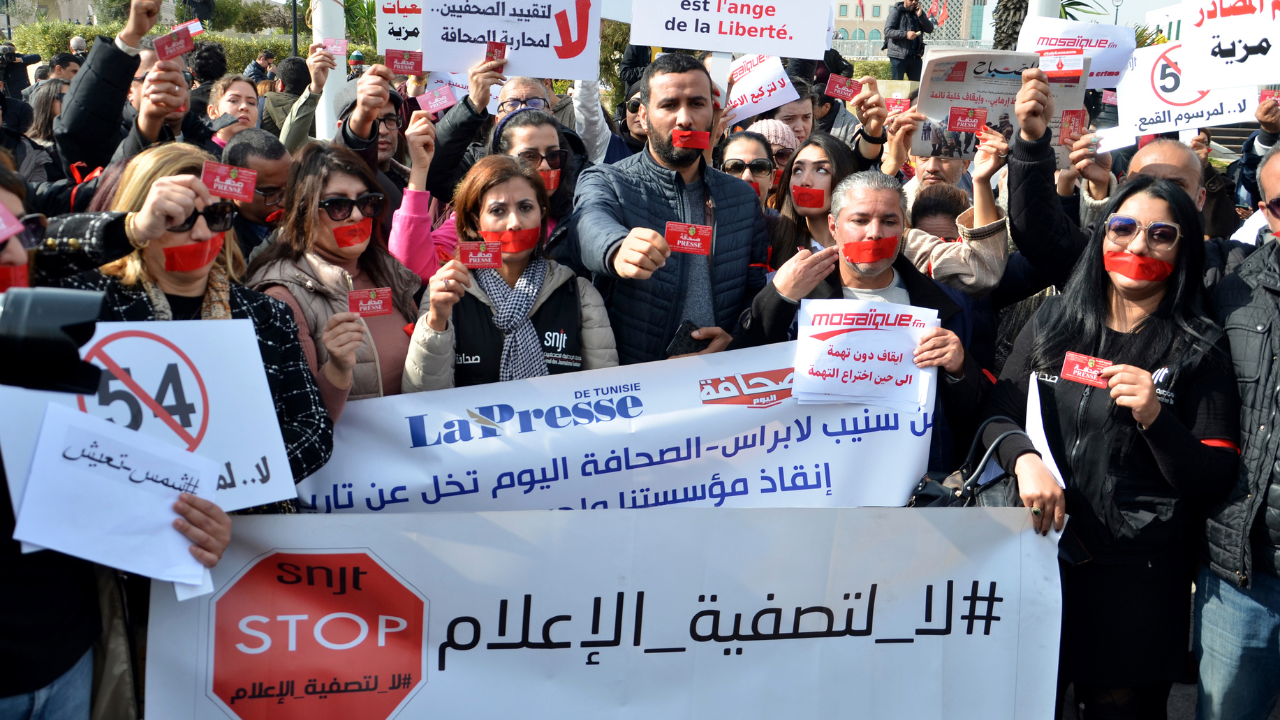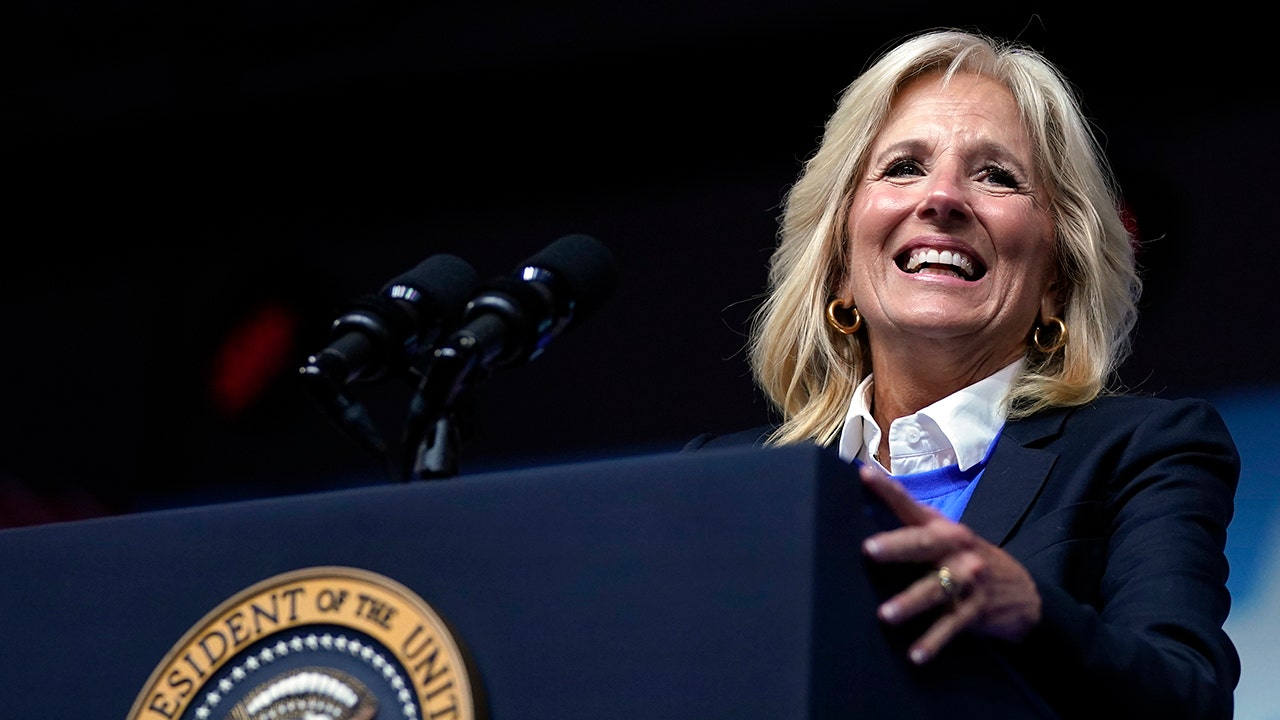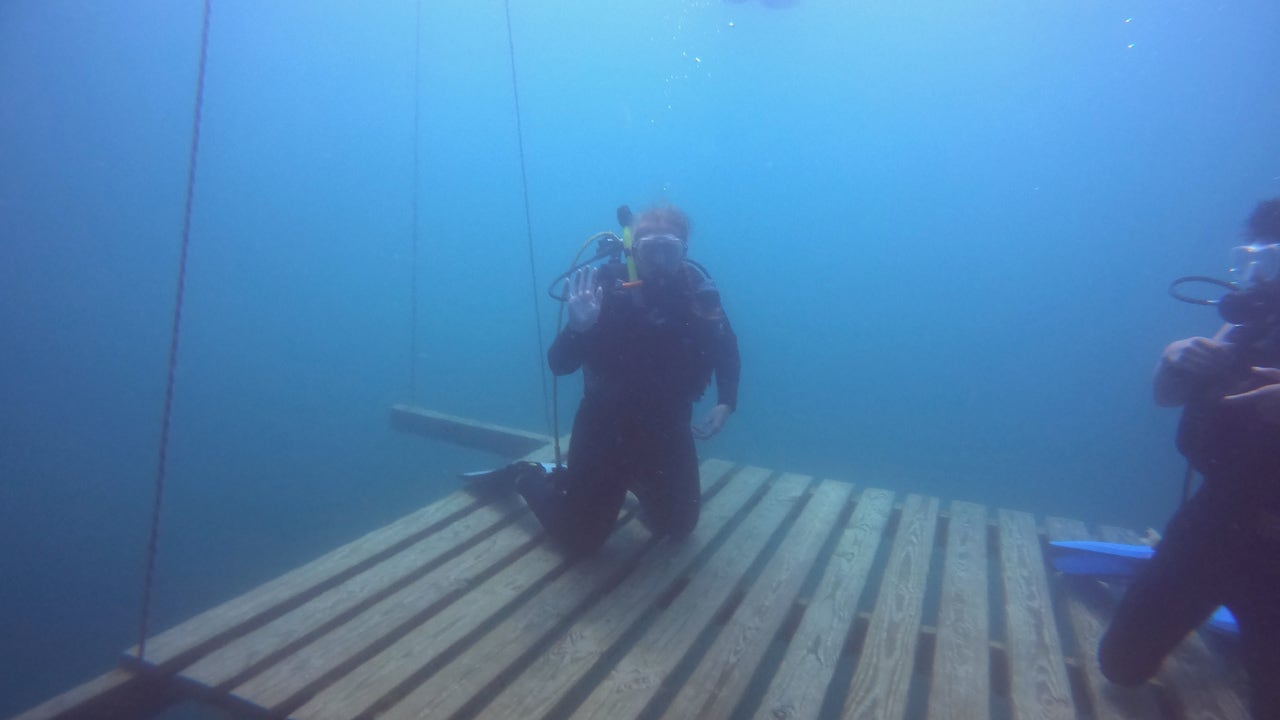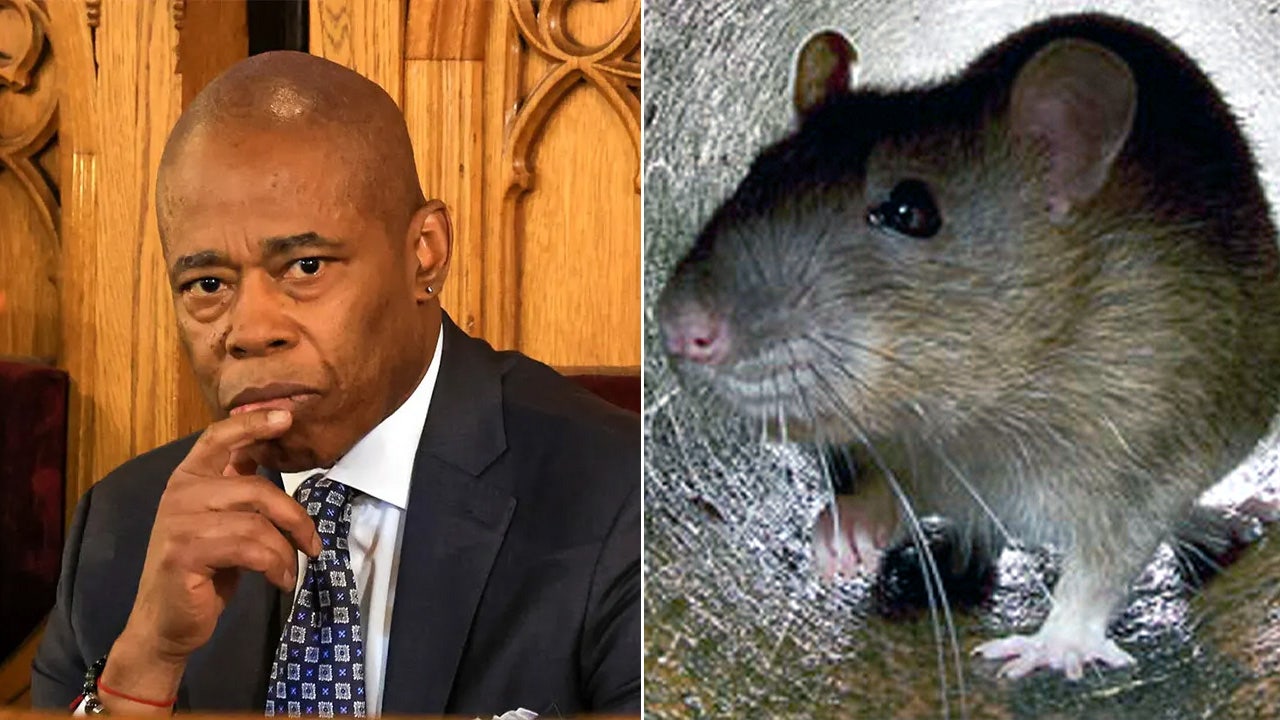World
UK’s opposition Labour Party gets a boost from Scotland by-election victory

Labour leader Keir Starmer hails ‘seismic result’ as his party takes the parliamentary seat of Rutherglen and Hamilton West from the Scottish National Party.
The United Kingdom’s main opposition Labour Party has won an emphatic victory in a by-election for a Scottish district that was watched as an indicator of the party’s rebounding popularity before a national election next year.
Labour took the parliamentary seat of Rutherglen and Hamilton West, near Glasgow, from the Scottish National Party. The result doubles Labour’s total of Scottish seats from one to two.
Labour candidate Michael Shanks won 17,845 votes, more than twice the number taken by SNP runner-up Katy Loudon. The Scottish Conservatives came a distant third.
Labour leader Keir Starmer called it a “seismic result.”
“It was a big step in the right direction, an important one,” he said on Friday.
The election was called when the former lawmaker, Margaret Ferrier, was removed by her constituents for breaking coronavirus restrictions in 2020 by taking a long train journey when she had COVID-19.
Pressure builds on SNP’s Yousaf
Labour was long dominant in Scotland but in the past 15 years has been all but wiped out by the SNP, which wants Scotland to leave the UK and become an independent country.
The result adds to pressure on Scottish First Minister Humza Yousaf, who took over as SNP leader in March after his predecessor Nicola Sturgeon resigned amid a continuing police investigation into the party’s finances.
The party, which has dominated Scottish politics for more than a decade, has seen its popularity slump and has reached an impasse in its push for a new referendum on independence.
“It’s a tough day for the SNP, a disappointing result. There’s no point pretending otherwise.” Yousaf said. “The SNP has to reflect, we’ve got to regroup, we’ve got to reorganise.”
Starmer’s party needs to regain ground in Scotland to win a majority of seats in a general election that must be called by the end of 2024. Labour has been out of power since 2010.
A ‘good night’ for Labour
University of Strathclyde polling expert John Curtice said the 20 percent swing to Labour – if replicated at a general election – could allow the party to recapture dozens of seats north of the border.
That could have “implications for the overall outcome in the general election because, if that were to happen, they would find it easier to get an overall majority”, Curtice added.
Starmer’s Labour has enjoyed double-digit poll leads for months as Prime Minister Rishi Sunak’s government has grappled with stubbornly high inflation and a cost-of-living crisis.
Recent surveys, however, have shown the gap narrowing, following a host of populist policies announced by Sunak in recent weeks.
But Curtice said the Scottish result “firmly” confirmed “the direction of travel indicated by the polls”.
The Conservative Party also suffered a big defeat to Labour in July in the northern English constituency of Selby and Ainsty.
Curtice said taken together the wins were the “kind of results that you see in advance of general elections when parties are on course to win”, adding that it had been a “remarkably good night” for Labour.
Labour was once the dominant force in Scottish politics but has seen its influence decline at a national level since the end of Prime Minister Gordon Brown’s government in 2010.
In the devolved Scottish parliament in Edinburgh, the SNP has long been the biggest party and currently governs in a coalition with the pro-independence Greens.

World
Citi fined $79 mln by UK regulators over 'fat-finger' failures

World
Tunisian journalists jailed for criticizing the government, sparking outcry over press crackdown

- Two Tunisian journalists were sentenced to one year in prison for criticizing the government.
- Each journalist received six months for disseminating “fake news” and an additional six months for “making false statements with the aim of defaming others.”
- Both journalists denied the allegations, citing Tunisia’s laws protecting freedom of expression established after the 2011 revolution.
A Tunisian court on Wednesday sentenced two TV and radio journalists to one year in prison for criticizing the government on their programs and on social networks.
Borhane Bsaïs and Mourad Zeghidi were each given six months’ imprisonment for disseminating “fake news” and an additional six months for “making false statements with the aim of defaming others,” in reference to Tunisian President Kaïs Saied, court spokesperson Mohamed Zitouna said.
The sentences come less than two weeks after both were arrested. They are among a broader group of journalists, activists and lawyers charged under Decree 54, a law criminalizing the dissemination of “fake news” aimed at harming public safety or national defense.
TUNISIAN LAWYERS STRIKE IN PROTEST, ALLEGING TORTURE OF ARRESTED COLLEAGUE
The law, passed in 2022 to fight cybercrime, has been widely criticized by rights advocates who say the offenses are vaguely defined and are being used to crack down on the president’s critics.
Journalists display their press cards during a protest highlighting threats to press freedom and the resurgence of authoritarianism, following the arrest of Radio Mosaïque’s general manager, Noureddine Boutar, on Feb. 16, 2023, in Tunis. A Tunisian court on Wednesday sentenced two TV and radio journalists to one year in prison for criticizing the government. (AP Photo/Hassene Dridi, File)
Both Bsaïs and Zeghidi denied the allegations. In court, they referred to laws protecting freedom of expression that Tunisia enshrined after its 2011 revolution, when it became the first country in the Middle East and North Africa to topple a longtime dictator. Both said they were simply doing their jobs, analyzing and commenting on political and economic developments in Tunisia.
“I am neither for nor against the president. Sometimes I support his choices, sometimes I criticize them. It’s part of my job,” Zeghidi said.
Bsaïs, host of the radio show “Emission Impossible” (“Impossible Program” in English) was accused of undermining the president on the air and in Facebook posts made between 2019 and 2022. It’s unclear why authorities targeted old posts like his as they pursue a growing number of Saied’s political critics.
He defended his opinions and in court objected to being brusquely arrested last week “like a dangerous criminal.”
The trial has drawn international condemnation and sparked criticism in Tunisia, where many journalists gathered in front of the court in a show of support.
“We are all on provisional release because any journalistic work can give rise to prosecution,” Zied Dabbar, president of Tunisia’s National Journalists Syndicate, said of Decree 54. He said 39 journalists have been prosecuted under the law this year.
Saied has faced criticism for suspending parliament and rewriting the constitution to consolidate his own power three years ago. Critics have spoken out against the government’s approach to politics, the economy and migration in the Mediterranean in the years since.
World
Russia arrests another general on bribery charges

Authorities arrest Lieutenant-General Vadim Shamarin, latest in a string of bribery arrests of high-ranking officials.
Marking the fourth arrest of a high-ranking military official in a month, Russia has detained Lieutenant-General Vadim Shamarin, deputy head of the army’s general staff, on suspicion of large-scale bribe-taking.
A military court ordered on Wednesday that Shamarin, who also heads the Ministry of Defence’s main communications directorate, be jailed for two months, according to the state-run TASS news agency.
Shamarin’s detention follows the arrests of other top defence officials as part of an effort to stamp out corruption relating to the awarding of lucrative military contracts.
Earlier this month, Major-General Ivan Popov, a former top commander in Russia’s offensive in Ukraine, and Lieutenant-General Yuri Kuznetsov, head of the Defence Ministry’s personnel directorate, were arrested on bribery charges.
In April, Deputy Defence Minister Timur Ivanov, a close associate of former Defence Minister Sergei Shoigu, was also arrested for alleged bribery. President Vladimir Putin later dismissed Shoigu as defence minister soon after his inauguration in May, replacing him with economist Andrei Belousov.
Shoigu had been widely blamed for Russia’s failure to capture Kyiv early in the Ukraine fighting and was accused of incompetence and corruption by Yevgeny Prigozhin, chief of the mercenary Wagner Group, who died in a plane crash last year after launching a “failed mutiny”.
Three other people have also been arrested as part of the crackdown – a friend of Ivanov, a boss at a construction company alleged to have paid bribes, and the former head of several companies subordinate to the Defence Ministry.
Shamarin is a deputy to General Valery Gerasimov, head of the general staff. Gerasimov has not been accused of any wrongdoing, though he has at times faced harsh criticism over the performance of Russia’s military in the war in Ukraine.
The Kremlin denied on Thursday that authorities were carrying out a targeted purge.
“The fight against corruption is an ongoing effort. It is not a campaign. It is an integral part of the activities of law enforcement agencies,” Kremlin spokesman Dmitry Peskov told reporters.
Major assault
The arrests and change of leadership at the Defence Ministry comes as Russian forces made one of its most significant battlefield advances in 18 months with a major assault on Ukraine’s northeastern Kharkiv region.
The latest Russian attacks on the city of Kharkiv, the regional capital, killed six people and injured at least 16, local authorities said on Thursday.
Governor Oleh Syniehubov said Russian forces struck Kharkiv about 10 times. The attack also targeted Zolochiv and Liubotyn in the Kharkiv region, injuring at least two people in each town, he said.
Posting on Telegram, Syniehubov reported that nearly 11,000 people had been forced to leave their homes in the region since Russian forces launched their ground attack on May 10.
Meanwhile, Ukraine launched a drone at a village in Russia’s Belgorod border region and shelled the occupied city of Gorlivka in its east on Thursday, killing two people, local authorities said.
The Russian Defence Ministry said on Thursday that its air defence systems in Belgorod destroyed three Olkha and 32 Vampire rockets and three drones launched by Ukraine overnight.
The Kremlin says its new Kharkiv offensive is aimed at creating a “security zone” to prevent future Ukrainian attacks across its border.
-

 World1 week ago
World1 week agoPro-Palestinian university students in the Netherlands uphold protest
-

 Politics1 week ago
Politics1 week agoReports of Biden White House keeping 'sensitive' Hamas intel from Israel draws outrage
-

 Politics1 week ago
Politics1 week agoSouthern border migrant encounters decrease slightly but gotaways still surge under Biden
-

 Politics1 week ago
Politics1 week agoWhite House walks diplomatic tightrope on Israel amid contradictory messaging: 'You can't have it both ways'
-

 Politics1 week ago
Politics1 week agoDem newcomer aims for history with primary win over wealthy controversial congressman
-

 World1 week ago
World1 week agoSlovakia PM Robert Fico in ‘very serious’ condition after being shot
-

 Politics1 week ago
Politics1 week agoJill Biden tells Arizona college graduates 'community colleges should be free in America'
-

 News1 week ago
News1 week agoDespite state bans, abortions nationwide are up, driven by telehealth














